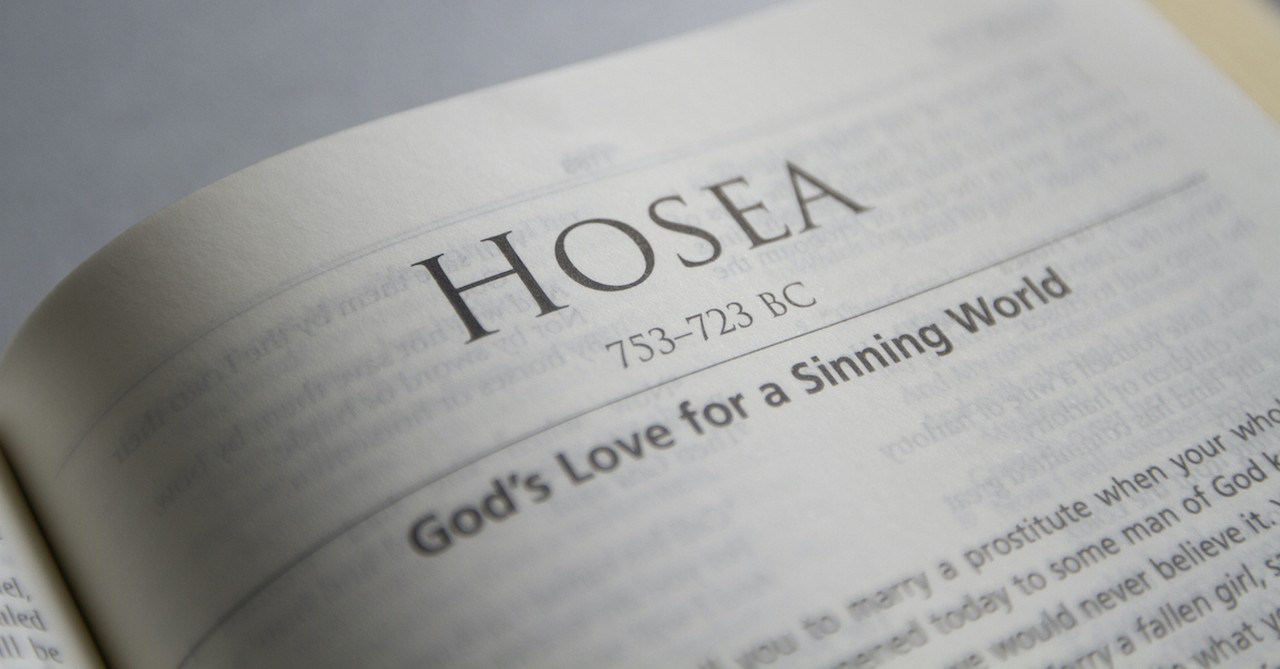4 Beautiful Metaphors That Show God's Love for His People

Marriage--the covenant two people make to be faithful to one another, to love one another, to share one another’s burdens--is nearly as old as the world itself.
In the second chapter of Genesis we read how, despite all the diverse animals God created and brought to Adam to name and care for, no suitable helper and companion was found for him (vs. 20). That is when God causes Adam to fall into a deep sleep, and while he is sleeping, God creates Eve from Adam’s rib and brings her to him.
When Adam sees Eve, he seems to be in awe and says, “This is now bone of my bones and flesh of my flesh; she shall be called ‘woman,’ for she was taken out of man.That is why a man leaves his father and mother and is united to his wife, and they become one flesh” (Gen. 2:23).
And so we see the beginning of the marriage covenant with the first man and woman on earth.
Although marriage has been questioned, belittled, and criticized in many different ways throughout the centuries since Adam and Eve, it is truly amazing that this covenant--ordained by God--has endured. It remains an important part of our society, and more than that, for Christians, it represents the relationship between Christ and his people.
Looking at the Bible’s marriage metaphors is helpful to both strengthen your marriage and to remind you of the depth of Christ’s love for you, his beautiful bride.
Let’s look at 4 of these metaphors.
Photo Credit: ©Getty Images/mictian
1. The Israelites in the Wilderness

1. The Israelites in the Wilderness
SLIDE 1 OF 4
You may be familiar with the story of Exodus when God rescues the people of Israel from enslavement in Egypt. He appoints Moses, Aaron, and others to lead them out of Egypt into the Promised Land.
Before they get to the Promised Land, however, they wander in the wilderness where they often doubt God’s provision and go back on their commitment to obey God’s Commands (Ex. 19:7-8).
God promises the Israelites that “[I]f you will indeed obey my voice and keep my covenant, you shall be my treasured possession among all peoples, for all the earth is mine; and you shall be to me a kingdom of priests and a holy nation” (Ex. 19:5).
As you read on in Exodus and throughout the Old Testament, it is clear that the Israelites do not uphold their part of the covenant. They disobey God’s commands, worship other gods, and their hearts grow “out of love” with God.
Still, God doesn’t give up on them. He provides manna and fresh water for them in the wilderness, he raises up Godly leaders and judges to turn their hearts back to him, and he relentlessly pursues them, even through years of captivity among their enemies.
Did you know that this is one big marriage metaphor!?
"Treasured possession" is what the groom would call his bride as they approach their ceremony (it's not him calling her his property, but just something special to him!) God is asking them to agree to a marriage covenant. And the wandering in the wilderness is supposed to be like a honeymoon between God and his people--a way for them to intimately know eachother.
There is so much more to this metaphor--I encourage you to listen to this podcast episode to learn more.
God proves that even though we have let down our side of the covenant, he will never let down his. He will never abandon his bride.
Photo Credit: ©iStock/Getty Images Plus/Christoph Auer
2. Hosea and Gomer

2. Hosea and Gomer
SLIDE 2 OF 4
Hosea was a prophet. He has a book named for him in the Old Testament and he is considered one of the minor prophets.
Hosea was sent to the people of Israel to proclaim their unfaithfulness to God, but also to reiterate God’s continued faithfulness to them.
This message was to be so real to Hosea that God commanded him to marry a promiscuous woman or, as some translations say, “a prostitute.” So Hosea takes Gomer from her former life and gives her protection and love and pursues her steadfastly as God pursued Israel.
Yet, like Israel, Gomer’s heart turns back to her old life; she leaves the care of Hosea and goes back to prostitution. So the Lord tells Hosea, “Go and love your wife again, even though she commits adultery with another lover. This will illustrate that the Lord still loves Israel, even though the people have turned to other gods and love to worship them” (Hosea 3:1).
Like Gomer and like the people of Israel, we fail God over and over. We find it easier to return to our old ways, though they don’t bring us ultimate happiness and rather bring us harm.
Yet as Hosea came for Gomer and even paid a price to redeem her, God always shows up in pursuit of us, his people.
Through Christ, he pays the ultimate price to bring us back to him.
Sometimes, our spouse doesn't deserve our love. But just as we don't deserve God's love, and yet he pours it out freely, let's aim to do the same with our wives and husbands.
Photo Credit: ©Sparrowstock
3. The Story of Ruth

3. The Story of Ruth
SLIDE 3 OF 4
If you haven’t read the book of Ruth recently, I highly encourage you to do so. It’s only four chapters, but is an amazing account of one woman’s commitment to her family and to caring for others, and in turn, God’s provision for her.
The story of Ruth opens on a despairing note. Ruth’s husband, father-in-law, and brother-in-law have all died, leaving herself, her sister-in-law, and her mother-in-law stranded in a strange land with no way to provide for themselves. But Ruth refuses to abandon her mother-in-law, and instead recommits to the relationship, though there seems to be nothing in it for her.
“Do not urge me to leave you or to return from following you,” Ruth tells Naomi, her mother-in-law. “For where you go I will go, and where you lodge I will lodge. Your people shall be my people, and your God my God” (Ruth 1:16).
Again, we see relentless pursuit of another in the midst of hardship. Although Ruth is not an Israelite herself, she demonstrates that she understands how this covenant works, and God honors her by providing a kind, well-respected husband for her who takes care of her and Naomi.
The story of Ruth provides a wonderful look at God’s love for his people, especially because Ruth can be seen as the figure doing the redeeming (by committing to Naomi even through hardship) and as the figure in need of redemption (as a poor widow herself, in need of protection and a husband).
Photo Credit: ©Getty Images/mycola
4. The Song of Solomon

4. The Song of Solomon
SLIDE 4 OF 4
This book of the Bible doesn’t get mentioned a lot, but it’s a truly beautiful love story between a man and his bride as well as a metaphor of Christ’s love for his Bride, the Church.
The book is unique among the other books of the Bible in that it doesn’t focus on laws or commands and doesn’t provide prescriptive guidance for living a Godly life. Instead, it focuses on the beautiful and loving relationship between the main characters which mirror the depth of love and commitment Christ has for his Bride--all those who believe in him.
The man’s call to his bride echoes God’s continual call to us to draw near to him:
“My lover said to me, ‘Rise up, my darling! Come away with me, my fair one! Look, the winter is past, and the rains are over and gone. The flowers are springing up, the season of singing birds has come, and the cooing of turtledoves fills the air. The fig trees are forming young fruit, and the fragrant grapevines are blossoming. Rise up, my darling! Come away with me, my fair one!’” (Song of Solomon 2:10-13).
Through these stories in Scripture, God reminds us of his relentless pursuit of us. His marriage covenant is not based on how well we uphold our end of the promise.
Though we, like those in these examples, may fail, he remains faithful. He sent his only Son, Jesus, as the ultimate commitment of how seriously he desires a true relational covenant with his people.
Like Hosea with Gomer, he is not only willing to receive us back into his love and protection after we go our own way--he left his throne to pursue us himself so that we can experience the blessings of union with him.
Photo Credit: ©Unsplash/David Thomaz
Veronica Olson wrote her first poem at age seven and went on to study English in college, focusing on 18th century literature. When she is not listening to baseball games, enjoying the outdoors, or reading, she can be found mostly in Richmond, VA writing primarily about nature, nostalgia, faith, family, and Jane Austen.
Originally published April 09, 2021.






